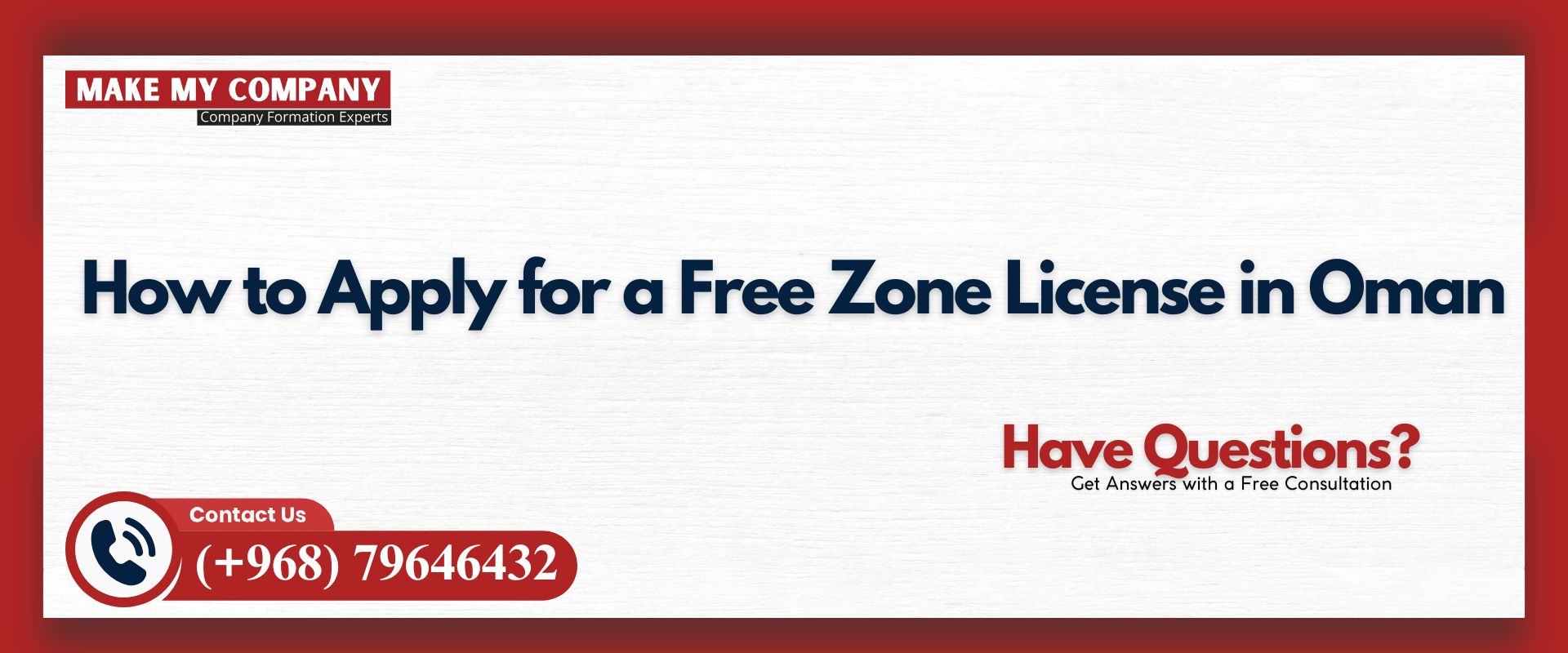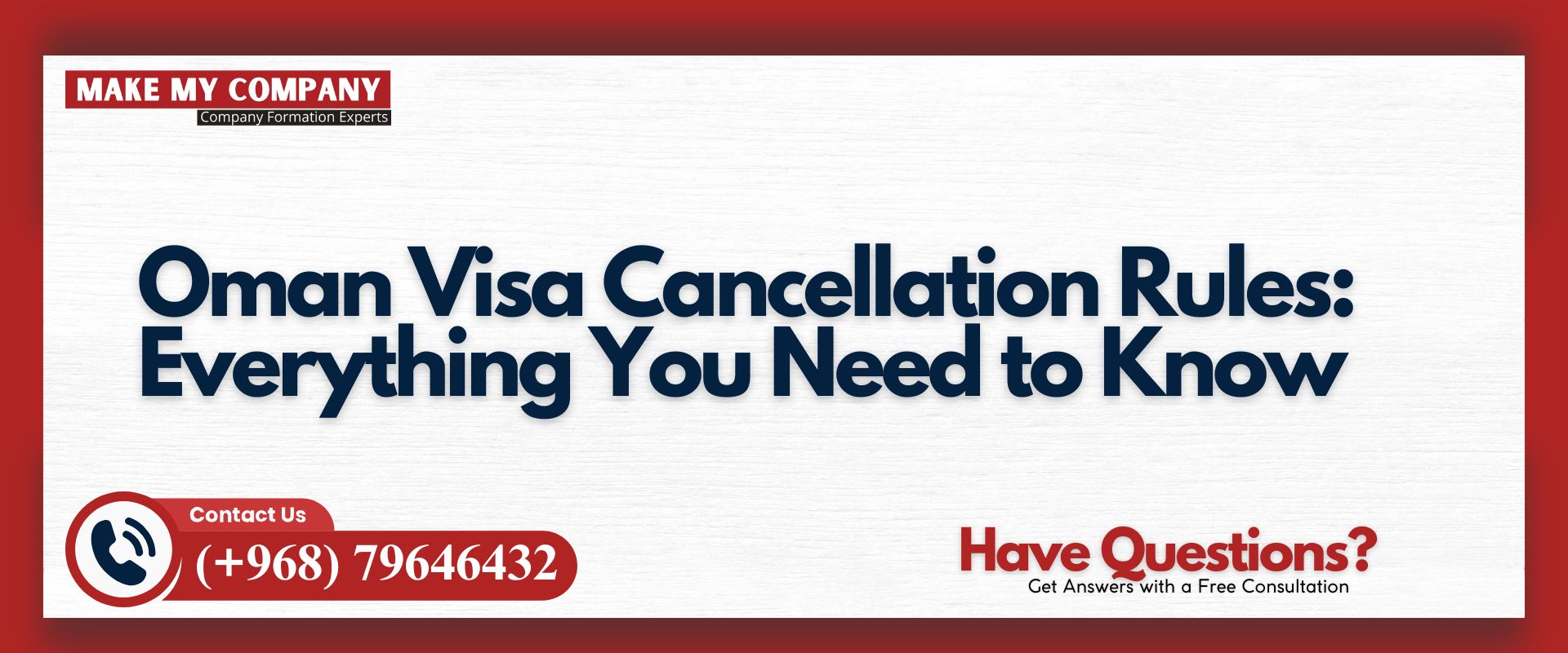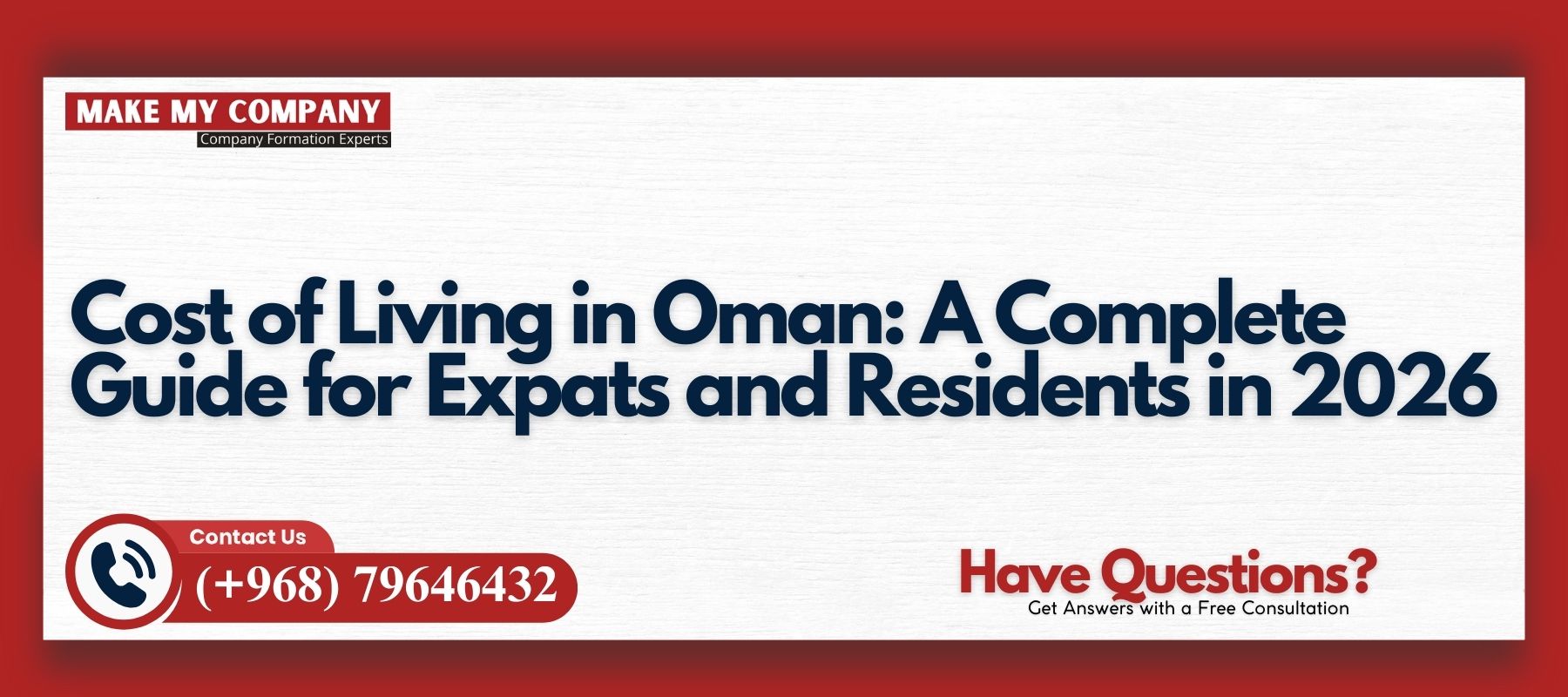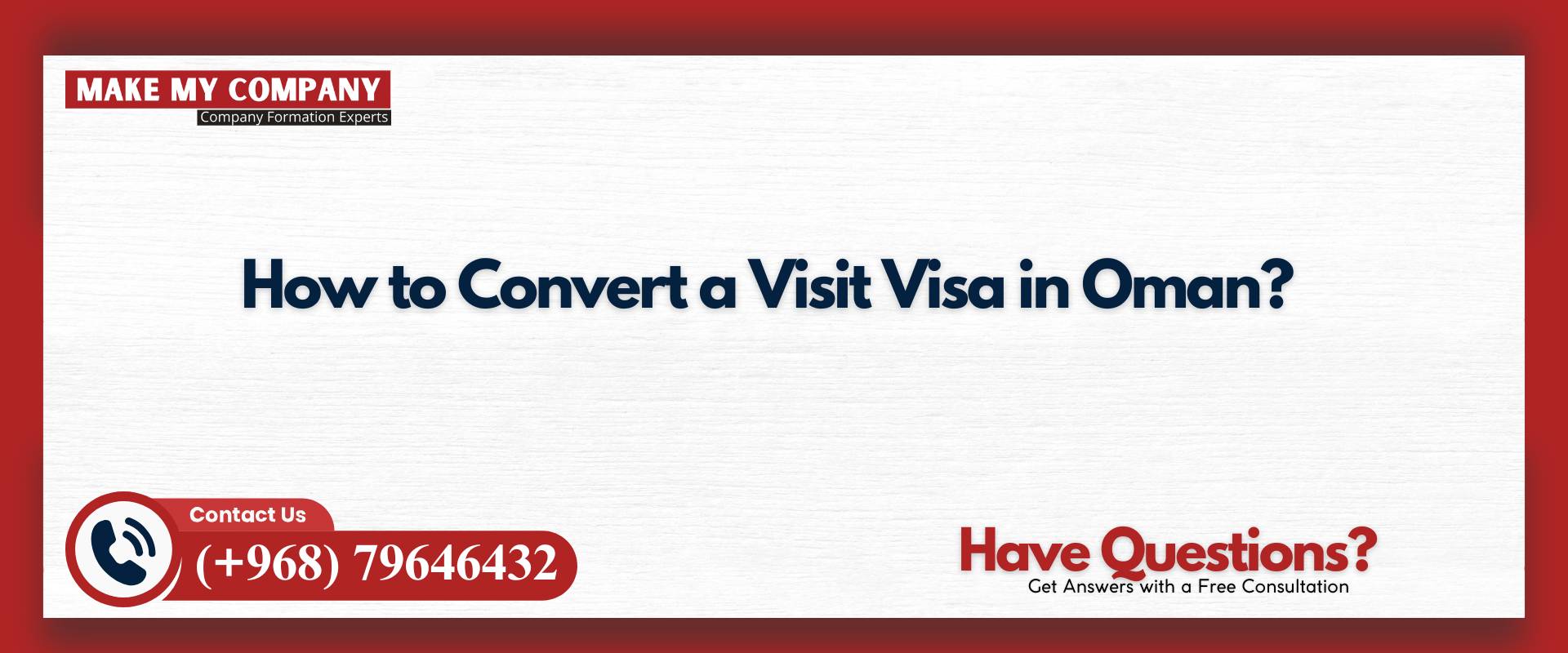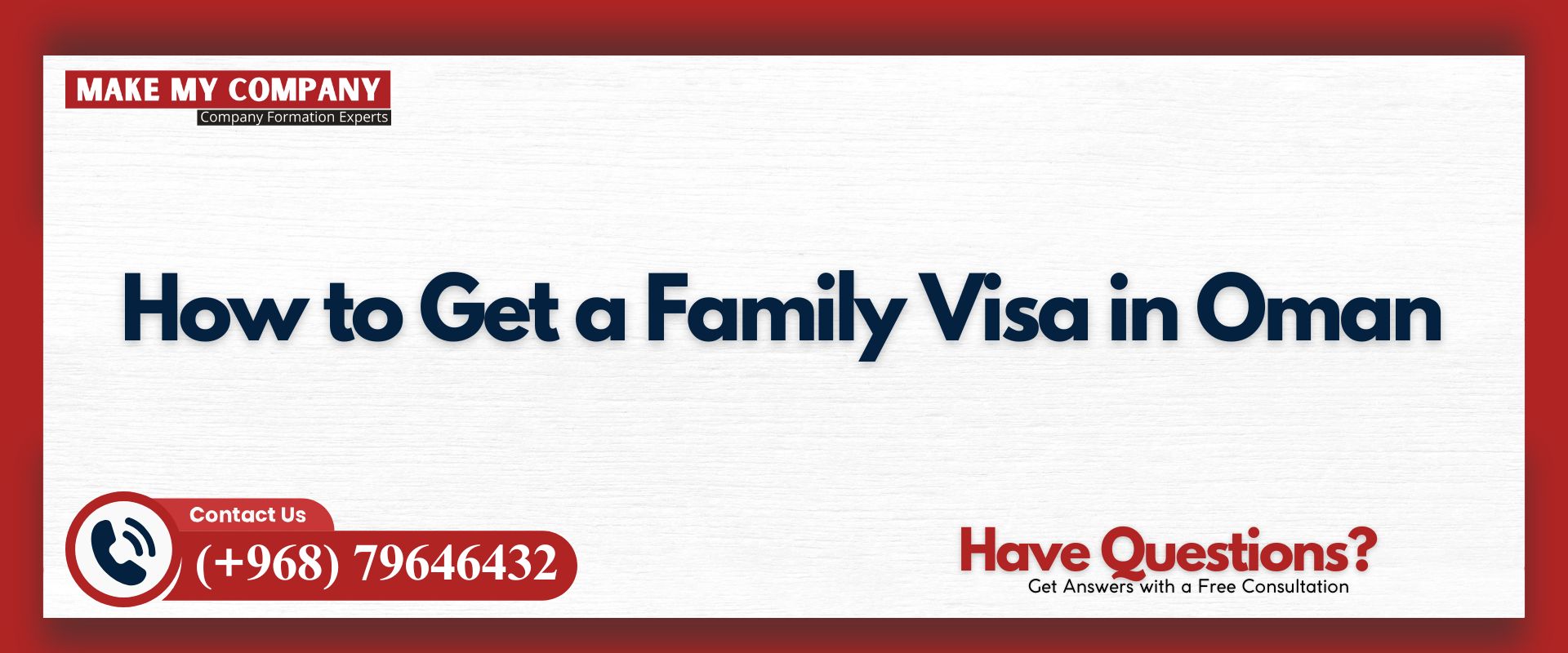Oman has established itself as one of the most investor-friendly countries in the GCC, offering world-class infrastructure, stable governance, and access to regional and international markets. One of the most attractive options for foreign and local investors is setting up a business in one of Oman’s free zones.
Obtaining a Free Zone License in Oman allows entrepreneurs to operate with tax benefits, full ownership, and easy access to global trade routes. Whether you’re starting a manufacturing unit, logistics firm, or service company, the Omani free zones provide a flexible and efficient environment to grow your business.
This comprehensive guide explains how to apply for a free zone license, the categories available, eligibility, and the step-by-step process every entrepreneur should know.
Table of Contents
Understanding the Concept of Free Zones in Oman
Free zones in Oman are designated economic areas that provide foreign investors with simplified business setup processes, relaxed regulations, and fiscal benefits.
What Are Free Zones?
Free zones are special economic areas designed to attract international investors by allowing 100% foreign ownership and offering tax exemptions. They are strategically located near ports and airports, making them ideal for industries such as manufacturing, logistics, and trading.
Why Choose a Free Zone in Oman?
Oman’s free zones — including Sohar, Salalah, Duqm, and Al Mazunah — offer unmatched business advantages. They are equipped with advanced logistics, access to seaports, and customs-free operations. Investors can repatriate profits, import goods without customs duties, and benefit from a zero personal income tax regime.
Legal Framework Governing Free Zones
Free zones operate under the oversight of the Public Authority for Special Economic Zones and Free Zones (OPAZ). This authority manages licensing, compliance, and incentives across all free zones in Oman, ensuring transparency and consistency for investors.
Major Free Zones in Oman for Business Setup
Oman has four main free zones strategically spread across the country, each catering to specific industries and business needs.
Sohar Free Zone
Located adjacent to the Sohar Port, this zone is ideal for heavy industries, logistics, and trading. Sohar Free Zone connects to the GCC road network and the Sohar Industrial Port, offering easy access to international markets.
Salalah Free Zone
Salalah is one of the most popular free zones for logistics and manufacturing companies due to its proximity to the Port of Salalah. It is particularly attractive for businesses in food processing, pharmaceuticals, and logistics.
Duqm Special Economic Zone
The Duqm SEZ is Oman’s largest and most ambitious industrial project. It hosts refineries, petrochemical complexes, renewable energy projects, and maritime industries. Investors benefit from integrated infrastructure and world-class facilities.
Al Mazunah Free Zone
Situated near the Yemen border, Al Mazunah caters to light industries and trading companies focusing on cross-border trade with Yemen and East Africa. It offers affordable setup options and incentives for small and medium enterprises (SMEs).
Types of Free Zone Licenses in Oman
Each free zone in Oman issues different categories of licenses based on the nature of your business activities.
Trading License
A Trading License is ideal for businesses involved in import, export, or re-export of goods. Companies with this license can store and distribute products within the free zone or export them internationally.
Service License
A Service License allows companies to provide professional or consultancy services within the free zone. Examples include IT services, marketing, financial consultancy, and design services.
Industrial or Manufacturing License
Issued to companies engaged in production or assembly activities, this license allows import of raw materials, manufacturing within the zone, and export of finished products without customs duties.
Logistics License
Businesses specializing in warehousing, transportation, and supply chain management can apply for a Logistics License. Free zones like Salalah and Sohar are popular for logistics operations due to their proximity to major ports.
Benefits of Obtaining a Free Zone License in Oman
Setting up in an Omani free zone offers investors significant commercial and regulatory advantages.
100% Foreign Ownership
Unlike mainland businesses, free zone companies can be fully owned by foreign investors without needing a local sponsor.
Tax Exemptions
Companies are exempt from corporate income tax for up to 25 years, with no customs duties on imported or exported goods.
Repatriation of Profits
Investors can freely repatriate 100% of their profits and capital without restrictions.
World-Class Infrastructure
Free zones offer ready-built offices, warehouses, and industrial plots equipped with advanced logistics and utilities.
No Minimum Capital Requirement (in most zones)
Some zones allow startups to begin operations without heavy initial capital, making it easier for small businesses and entrepreneurs to establish operations.
Eligibility Criteria for Applying for a Free Zone License in Oman
Before applying, it’s important to ensure your business meets the basic eligibility requirements set by the respective free zone authorities.
Business Activity Compliance
Your chosen business activity must fall within the categories permitted by the specific free zone. For example, industrial activities are better suited to Duqm or Sohar, while consulting firms may prefer Salalah.
Company Ownership Structure
Applicants can establish a Free Zone Company (FZC) or a Free Zone Establishment (FZE). An FZE has a single shareholder, while an FZC can have multiple shareholders.
Legal Documentation
Applicants must provide valid identification, proof of address, business plan, and other documents as per the regulatory requirements.
Step-by-Step Process to Apply for a Free Zone License in Oman
Applying for a free zone license in Oman is a straightforward process if you follow each step carefully.
Step 1: Choose the Right Free Zone
Evaluate your business type and select a free zone that best aligns with your operational goals and logistics needs.
Step 2: Define Business Activities and Structure
Choose the type of company you want to form — FZE or FZC — and list your intended activities based on your target industry.
Step 3: Reserve a Company Name
Submit your preferred company name to the respective free zone authority for approval. The name must be unique and adhere to Omani naming guidelines.
Step 4: Submit Initial Application
Complete the initial application form and submit it with the required documents, such as passport copies of shareholders, proposed business activities, and a project description.
Step 5: Obtain Initial Approval
After review, the authority grants initial approval, allowing you to proceed with the next steps, such as renting office space or finalizing documents.
Step 6: Lease Office or Warehouse Space
Select and lease office or warehouse premises within the free zone as required for your business operations.
Step 7: Prepare and Submit Legal Documents
Prepare your company’s Memorandum of Association (MOA) and Articles of Association (AOA). Submit them along with lease agreements and identification proofs.
Step 8: Pay Fees and Obtain the License
Once documentation is complete, pay the relevant registration and licensing fees. Upon approval, you’ll receive your Free Zone License, officially authorizing you to operate.
Documents Required for Free Zone License Application
Proper documentation ensures a smooth registration process.
Individual Applicants
- Passport copy and visa page
- Proof of address (utility bill or lease agreement)
- Bank reference letter
- Business plan
Corporate Applicants
- Certificate of incorporation
- Memorandum and Articles of Association
- Board resolution approving the new entity
- Shareholder passport copies
Providing accurate documents minimizes delays and ensures a seamless approval process.
Duration and Validity of Free Zone Licenses
Free zone licenses in Oman are typically issued for one year and must be renewed annually.
License Renewal
Renewal requires submission of updated financial statements, lease contracts, and payment of annual renewal fees. Timely renewal avoids penalties and ensures uninterrupted business operations.
Modifying or Expanding a License
If you plan to expand operations or change business activities, you must apply for a license amendment with the free zone authority.
Costs of Setting Up a Business in Oman Free Zones
The total cost of setting up a free zone company depends on location, business type, and office size.
License and Registration Fees
Free zone license fees generally range between OMR 2,000 and OMR 5,000 annually, depending on activity type.
Office or Warehouse Lease
Rental costs vary by zone, with shared offices starting from OMR 1,000 per year and warehouses priced according to area and specifications.
Visa and Employee Costs
Companies can apply for employee visas through the free zone authority. Visa costs and labor cards depend on the number of staff and their nationalities.
Compliance and Legal Obligations for Free Zone Companies
Operating within a free zone still requires adherence to certain regulatory standards.
Accounting and Auditing
Free zone entities must maintain financial records and submit annual audited reports to their respective authorities.
Environmental and Safety Standards
Manufacturing and industrial companies must comply with environmental regulations, including waste management and emission control policies.
Employment Laws
Companies must follow Omani labor laws, ensuring fair employment practices, work permits, and insurance coverage for employees.
Business Activities Allowed Under a Free Zone License in Oman
Free zones in Oman cater to a wide range of industries and business types.
Industrial and Manufacturing Businesses
These include companies involved in metal production, chemicals, plastics, textiles, and automotive components. Duqm and Sohar are preferred locations for such industries.
Logistics and Warehousing
Companies offering freight forwarding, cargo handling, and warehousing can benefit from Salalah and Sohar free zones due to proximity to major seaports.
Trading and Distribution
Businesses engaged in import, export, and re-export activities can set up easily under a trading license, benefiting from customs exemptions.
Service-Oriented Businesses
Consultancy, design, engineering, IT, and professional service firms can operate under a service license, particularly in Salalah and Al Mazunah free zones.
Key Advantages of Establishing a Free Zone Company in Oman
Setting up a free zone company in Oman gives you a strategic advantage over traditional business models.
Simplified Customs and Trade Procedures
Free zone businesses enjoy customs-free import and export of goods, reducing operational costs significantly.
Full Repatriation and Currency Freedom
Companies can freely transfer profits and operate in multiple currencies, including USD, EUR, and OMR, without restrictions.
Access to Skilled Labor
Free zones attract a skilled workforce with competitive hiring policies and simplified visa procedures.
Common Challenges and How to Overcome Them
While Oman offers favorable conditions, businesses may face challenges during setup.
Understanding Legal Procedures
Navigating documentation can be complex for first-time investors. Working with expert consultants ensures accurate application and compliance.
Language and Communication Barriers
Most official documentation must be submitted in Arabic. Hiring translation services or local legal advisors can eliminate miscommunication.
Choosing the Right Free Zone
Each free zone caters to specific sectors. Assessing your long-term business goals helps select the most suitable location and license type.
Conclusion
Obtaining a Free Zone License in Oman is one of the most strategic ways to establish a strong business presence in the region. With benefits like 100% foreign ownership, tax exemptions, and flexible business structures, Oman’s free zones serve as powerful gateways to GCC, African, and Asian markets.
Each zone — whether it’s Sohar, Salalah, Duqm, or Al Mazunah — caters to specific industries ranging from manufacturing and logistics to trading and services. Understanding these categories and adhering to OPAZ regulations ensures a smooth business setup experience.
For a seamless process, it’s always wise to work with Business Setup Consultants in Oman, who can assist in document preparation, licensing, and compliance — helping you launch your operations confidently within Oman’s growing economic landscape.
FAQs
How long does it take to get a Free Zone License in Oman?
The process usually takes 2 to 4 weeks, depending on the free zone and completeness of submitted documents.
Can foreigners own 100% of a Free Zone company in Oman?
Yes, foreign investors can fully own their company without the need for a local sponsor.
What is the validity period of a Free Zone License?
Licenses are valid for one year and must be renewed annually with updated documents and payment of renewal fees.
What are the main Free Zones in Oman?
The primary free zones are Sohar, Salalah, Duqm, and Al Mazunah — each focusing on different sectors like industry, logistics, and trading.
What types of licenses are available in Oman Free Zones?
You can apply for trading, service, industrial, or logistics licenses depending on your business activities.
Are there any tax benefits for Free Zone companies?
Yes, companies are exempt from corporate tax for up to 25 years and enjoy customs-free imports and exports.



